Your heat pump's emergency heat can be a lifesaver in the winter. But will emergency heat automatically turn on when it is needed? We did the research to bring you the answer.
Typically, your heat pump will automatically switch to emergency heat when the outside temperature reaches freezing or below. This ensures that your home stays warm even when the weather is at its worst. However, you will need to manually turn on emergency heat if it doesn't.
If you live in a region with extreme weather conditions, having emergency heat will give you peace of mind. That's why in this article, we will discuss everything you need to know about heat pump emergency heat. In addition, we will answer other frequently asked questions about heating your home, so read on!
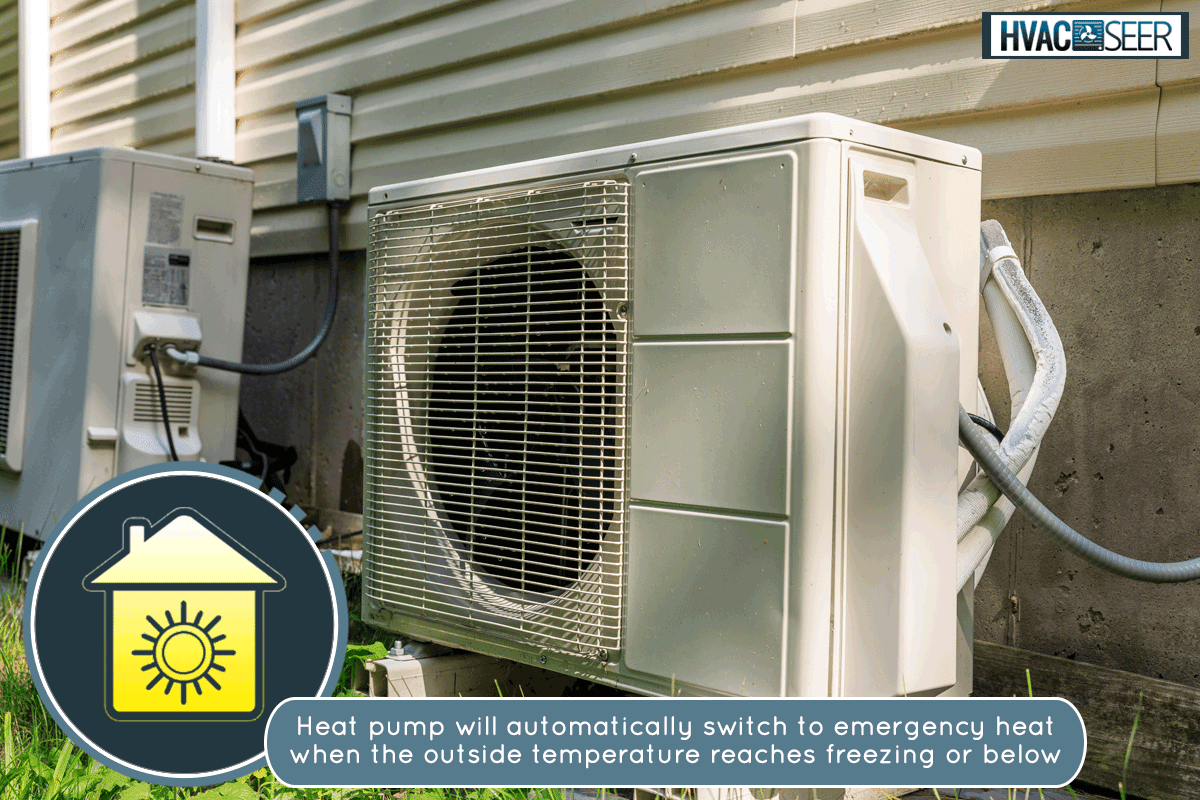
Will Emergency Heat Automatically Turn On?
Homes that have a thermostat with an emergency heat setting typically have their emergency heat automatically turn on when the outside temperature reaches freezing or below. This is to ensure that your home stays warm even when the weather is at its worst.
Your heat pump will use more energy to run in emergency heat mode, so you may see an increase in your energy bill. However, it is worth it to know that your home will be warm and comfortable no matter what the weather is like outside.
If temperatures drop drastically and your heat pump is having trouble keeping up, you may want to consider turning on your emergency heat sooner. This will help to prevent your home from getting too cold and will save you money in the long run.
To turn on emergency heat, simply find the switch on your thermostat and flip it to the "on" position. You may also see a light on your thermostat that indicates when emergency heat is turned on.
However, if your emergency heat still won't automatically turn on, there may be an issue with your heat pump. In this case, you will need to call a technician to come and take a look at it.
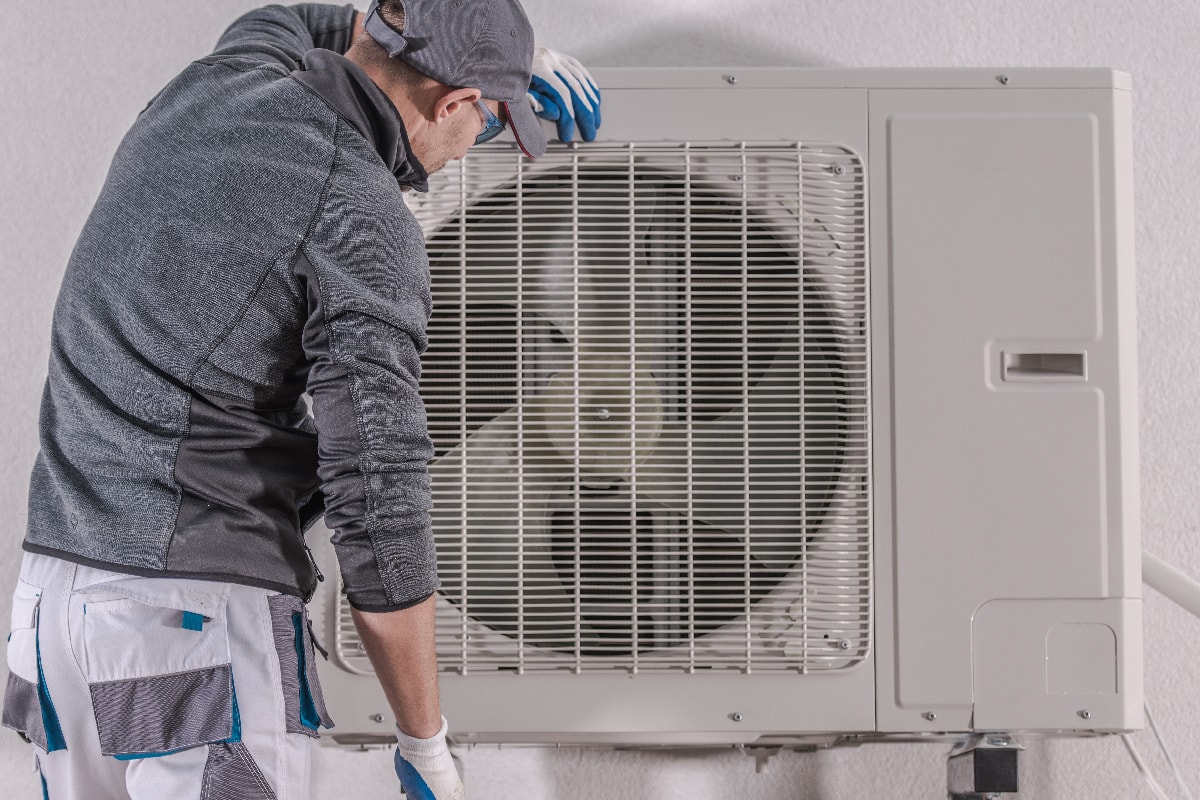
Why Is My Heat Pump Not Heating My Home?
If your home has switched to emergency heat, then your home is not receiving any heat from the pump. There are a few reasons why this could be happening:
Clogged Air Filter
If your air filter is clogged, then it needs to be replaced or cleaned out. A clogged air filter can prevent your heat pump from working properly, which can cause it to go into emergency heat mode.
To clean or replace your air filter, simply locate it and follow the manufacturer's instructions. Depending on the type of filter you have, you may need to replace it every few months.
Refrigerant Leak
If your heat pump is leaking refrigerant, then it will not be able to heat your home properly. This is because the refrigerant is what helps to transfer heat from the outside air into your home.
If you think your heat pump has a refrigerant leak, then you will need to call a technician to come and take a look at it. They will be able to repair the leak and recharge your heat pump with refrigerant.
Thermostat Issues
If your thermostat is not working properly, then it can prevent your heat pump from turning on or cause it to go into emergency heat mode.
To check if your thermostat is working properly, simply turn it on and off to see if the heat pump responds. If it doesn't, then you will need to call a technician to come and take a look at it.
Blocked Outdoor Unit
If the outdoor unit of your heat pump is blocked by snow, leaves, or other debris, then it will not be able to function properly. To clean your outdoor unit, simply remove any debris that is blocking it. You may also need to clear away any snow or ice that has built up on it.
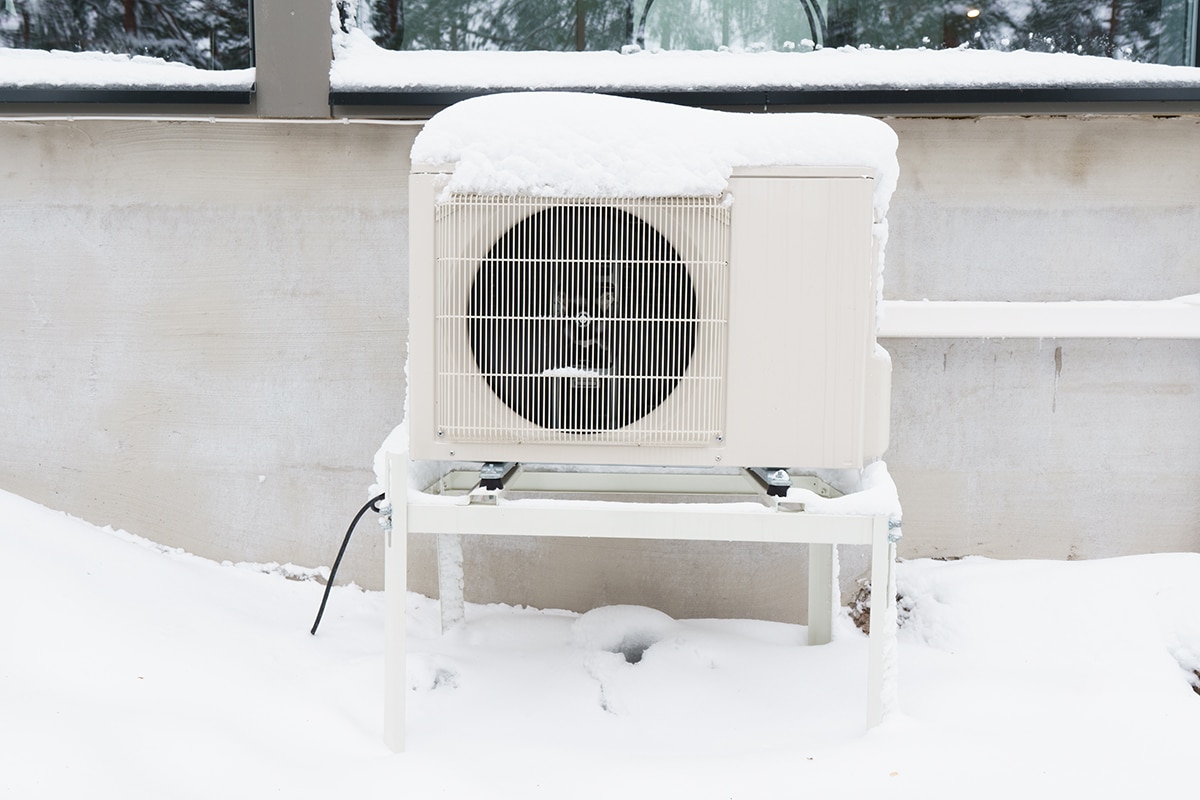
Faulty Reversing Valve
The reversing valve is what allows your heat pump to switch between heating and cooling modes. If it is not working properly, then your heat pump will not be able to heat your home.
If you think your reversing valve is not working properly, then you will need to call a technician to come and take a look at it. They will be able to repair or replace the valve as needed.
No Power
If you have a blown fuse or a tripped circuit breaker, then your heat pump will not be able to turn on. To fix this, simply find the blown fuse or reset the circuit breaker. If you are not sure how to do this, then you will need to call an electrician.
Wrong Heat Pump For Home
In order for a heat pump to heat your home properly, it must be the right size for your home. If it is too small, then it will not be able to heat your home properly.
If you think your heat pump is the wrong size for your home, then you will need to call a technician to come and take a look at it. They will be able to recommend a different heat pump that is better suited for your home.
Dirty Coils
If the coils on your heat pump are dirty, then it will not be able to heat your home properly. To clean your coils, simply remove any dirt or debris that is on them. You may also need to use a coil cleaning solution to help remove any buildup on the coils.
Bad Capacitor
The capacitor provides power to the compressor which helps to circulate the refrigerant. If it is not working properly, then your heat pump will not be able to heat your home.
If you think your capacitor is not working properly, then you will need to call a technician to come and take a look at it. They will be able to repair or replace the capacitor as needed.
These are some of the most common issues that can prevent your heat pump from working properly. If you are having trouble with your heat pump, then you will need to call a technician to come and take a look at it. They will be able to diagnose and fix the problem so that your heat pump can work properly again.
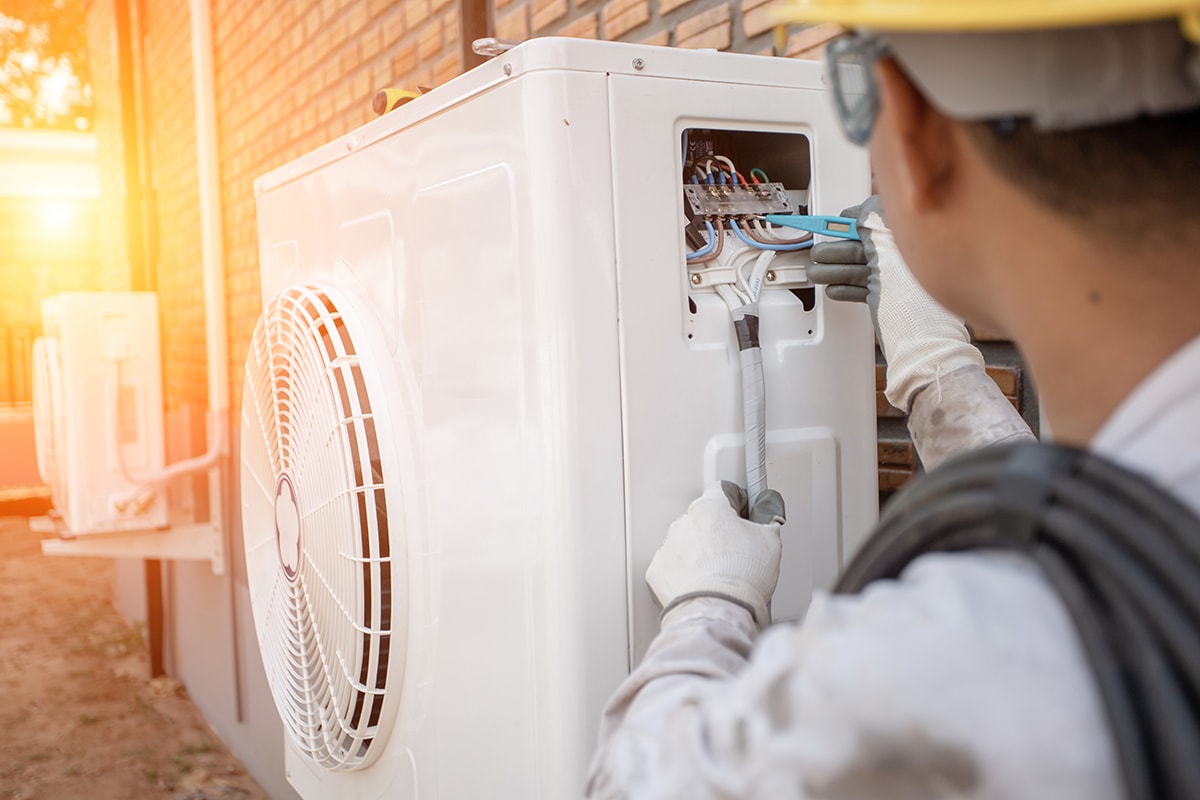
What Temperature Should I Set My Heat Pump In The Winter?
For energy efficiency, setting your heat pump to 68 degrees Fahrenheit during the winter is recommended. This will help to reduce your energy bill while still keeping your home comfortable.
If you have any pets or small children, then you may need to set your heat pump at a higher temperature to ensure they are comfortable. Home temperature is also a matter of personal preference, so you can set your heat pump at whatever temperature you like.
When Should I Schedule Maintenance For My Heat Pump?
It is recommended to schedule maintenance for your heat pump at least once a year. This will help to ensure that your heat pump is working properly and can prevent future problems from occurring.
If you live in an area with a lot of dust or pollen, then you may need to schedule maintenance more often. This is because the coils on your heat pump can become dirty more quickly, which can reduce its efficiency.
You should also schedule maintenance for your heat pump if you notice any problems with it. This will help to ensure that the problem is fixed before it becomes worse.
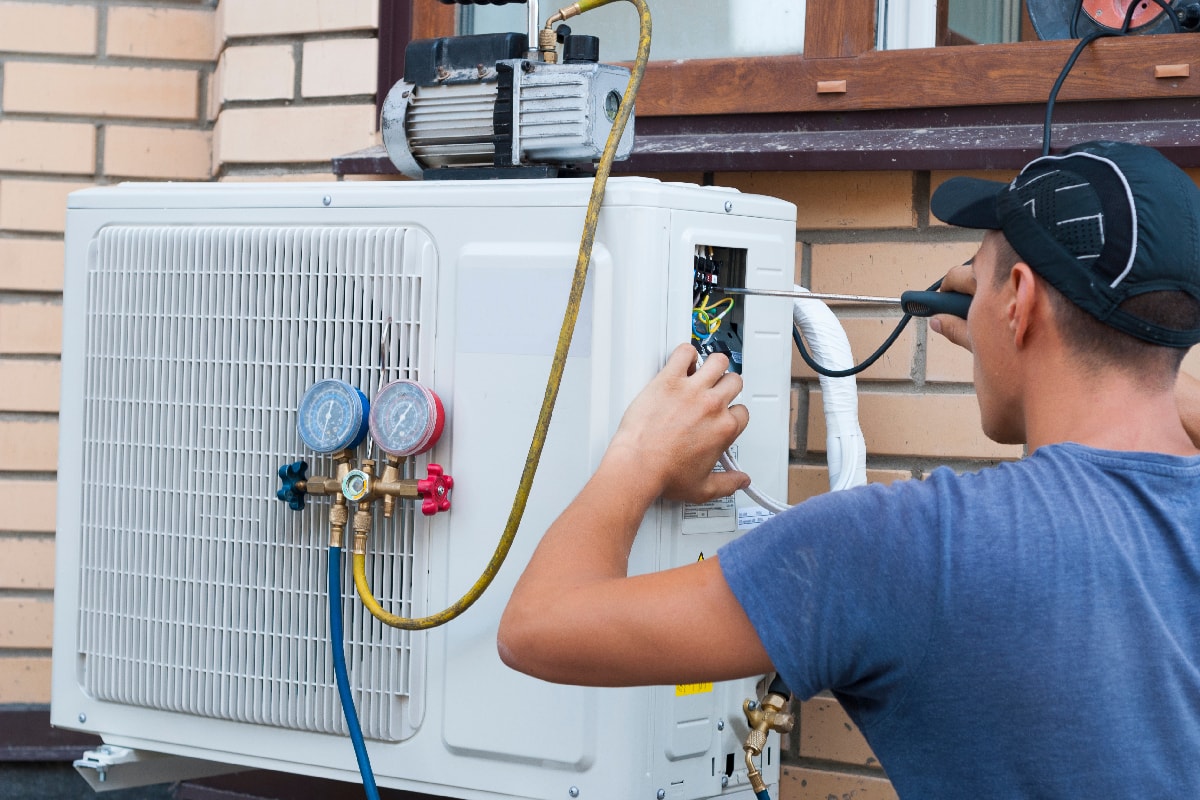
Do Heat Pumps Use A Lot Of Electricity?
Heat pumps do use electricity in order to operate, but they are actually very efficient. In fact, heat pumps are one of the most efficient heating and cooling systems available.
If you are concerned about your electricity bill, then you can talk to your technician about ways to make your heat pump more energy efficient. They may be able to recommend a different type of heat pump or make some changes to your current heat pump.
Overall, heat pumps are a very efficient way to heat and cool your home. With proper maintenance, they can last for many years.
Final Thoughts
Overall, if your heat pump had to resort to the emergency heat setting this winter, it is best to consult with a professional. There could be many reasons why your heat pump wasn't performing optimally, and a professional will be able to help you troubleshoot the issue.
In some cases, it may be as simple as scheduling routine maintenance or changing your filter. However, if the problem persists, it may be time to invest in a new heat pump that is better suited for your home.
Made it to the end? Here are other articles you might find helpful:
Heat Pump Buzzing And Fan Not Turning – What To Do?
